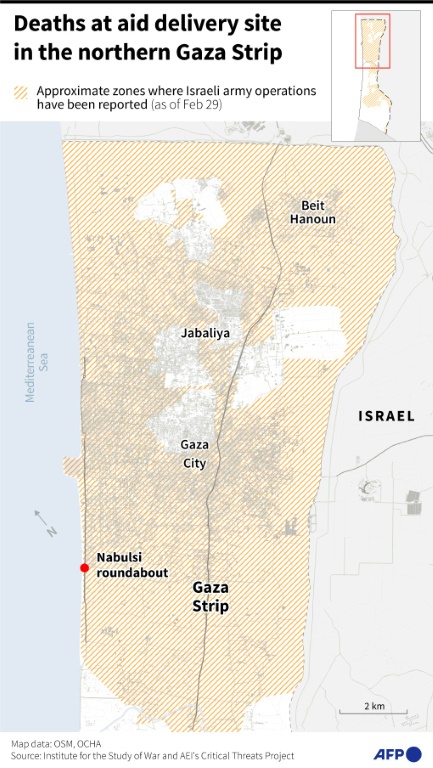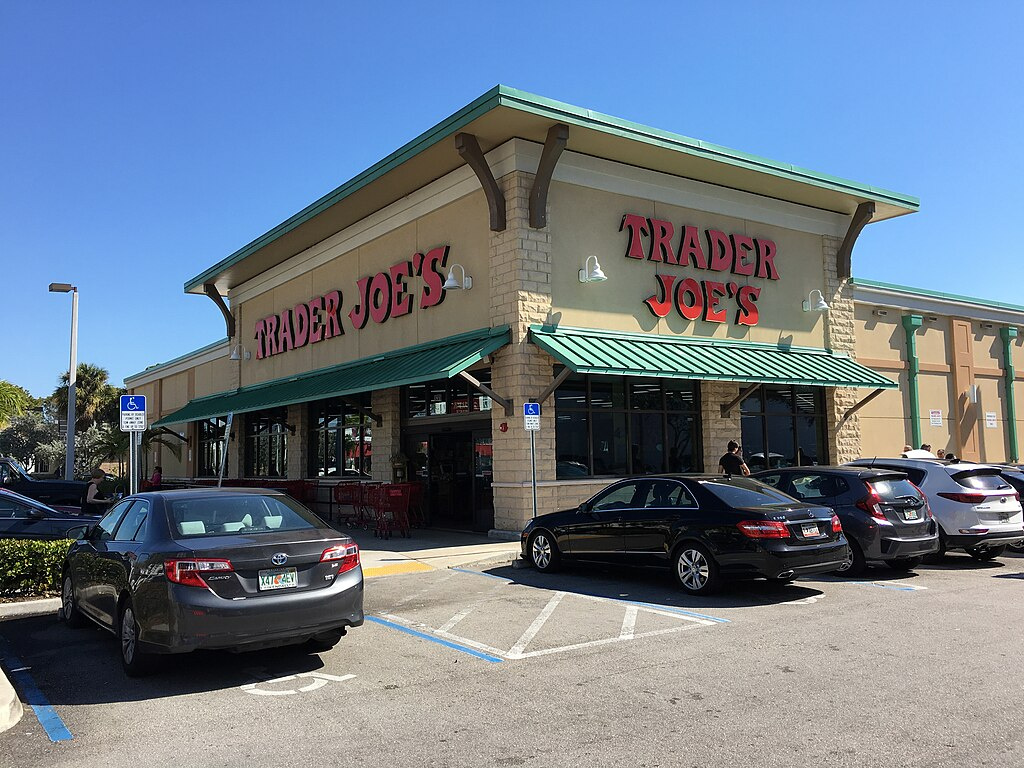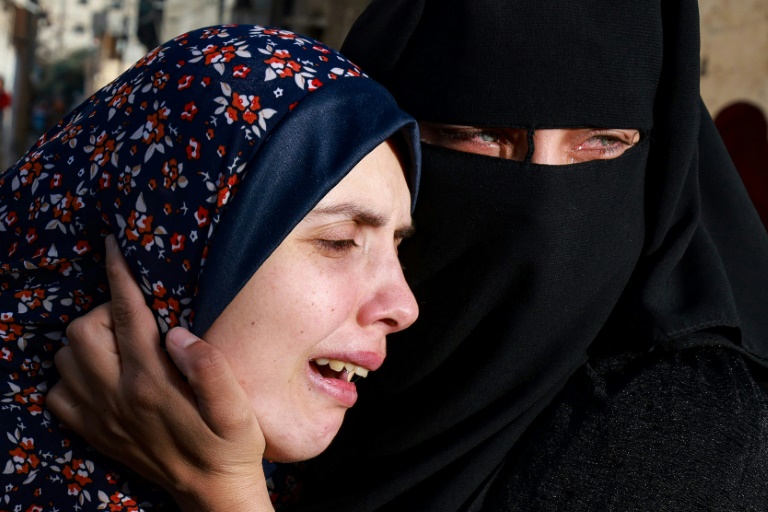Mediators in Cairo made a renewed push for a Gaza ceasefire, but differences remained as fighting raged on in the Palestinian territory gripped by desperate food shortages.
US, Qatari and Hamas envoys travelled to Cairo for the latest effort towards a six-week truce, stepped-up aid deliveries and the exchange of hostages for Palestinian prisoners.
But sticking points remained, including a Hamas demand that the Israeli armed forces entirely withdraw from the Gaza Strip after almost five months of devastating war.
And Israel, which has so far announced no plans to join the Egypt talks, has demanded Hamas provide it with a list of all 130 remaining captives, including more than 30 it fears are dead.
Despite the latest push to halt the fighting sparked by Hamas’s October 7 attack on Israel, Israeli bombing and urban combat again rocked Gaza, home to 2.4 million people, most of whom have been displaced.
Another 90 Palestinians were killed within 24 hours, said Hamas-ruled Gaza’s health ministry, which put the war’s overall death toll at 30,410, mostly women and children.
Two of the latest victims, twin babies Naeem and Wissam Abu Anza, were buried on Sunday as their mother Rania wept in agony, an AFP photographer said.
A relative, Shehda Abu Anza, said “only civilians” were in the house when it was bombed, killing 14 members of one family.
“All of them were sleeping when suddenly a missile hit and destroyed the whole house,” he told AFP as residents searched the rubble with their bare hands, for bodies and also to salvage scarce food.
An Israeli siege on Gaza has sparked dire warnings from the United Nations of famine, leading the United States to start airdropping food rations into Gaza on Saturday.
Jordan and some other countries have already done so.
At least 16 children have died of malnutrition in recent days as “famine spreads” in Gaza’s north, said health ministry spokesman Ashraf al-Qudra.
Gaza’s desperation was grimly highlighted last Thursday when more than 100 people were killed in chaotic scenes around a convoy of aid trucks.
Gaza health officials said Israeli forces opened fire into the crowd, causing a “massacre”, while Israel’s army said most victims were trampled or hit by trucks in a chaotic crush for food aid.
Armed forces spokesman Rear Admiral Daniel Hagari said an initial review “has indicated that following the warning shots fired to disperse the stampede… several looters approached our forces and posed an immediate threat to them”.
Troops then fired “towards several individuals”, Hagari said, adding that an “independent” army body would launch an investigation.
A UN team that visited some of the wounded in Gaza City’s Al-Shifa Hospital on Friday saw a “large number of gunshot wounds”, said UN chief Antonio Guterres’s spokesman Stephane Dujarric.
The war broke out on October 7 with an unprecedented Hamas attack on southern Israel that resulted in the deaths of about 1,160 people, mostly civilians, according to an AFP tally of official figures, and saw 250 hostages taken.
Israel’s military on Sunday announced the death of one more soldier in Gaza, bringing to 246 the number killed since ground operations began on October 27.
In the worst ever Gaza war, more air strikes hit southern Rafah and Khan Yunis overnight, and the Hamas government media office reported intense tank shelling in northern Gaza.
The Israeli military reported hitting about 50 targets including “underground terrorist infrastructure”.
The UN Security Council on Friday voiced concern over Gaza’s “alarming levels of acute food insecurity” and urged “the immediate, rapid, safe, sustained and unhindered delivery of humanitarian assistance at scale”.
Pope Francis called for Gaza civilians to be given “safe access to the humanitarian aid they urgently need”, telling the faithful at the Vatican that he supports an “immediate ceasefire” and hostage release.
Mediators have been scrambling to lock in a truce before Ramadan, the Muslim fasting month that begins in around one week.
Envoys from the United States, Qatar and Hamas have arrived in Cairo, Egyptian state-linked media reported Sunday.
Washington regards Hamas as a “terrorist” organisation, and in previous talks Egyptian officials have acted as intermediaries.
“The Israelis have more or less accepted it,” the administration official said. “Right now, the ball is in the camp of Hamas.”
A Hamas official said that, if Israel were to meet its demands, this would “pave the way for an agreement within the next 24-48 hours”.
Osama Hamdan, a Lebanon-based Hamas official, told Qatar’s Al-Araby TV that the group insisted on a complete, rather than “temporary”, ceasefire and on “ending the aggression against our people”.
Israeli Prime Minister Benjamin Netanyahu has so far rejected pulling troops out of Gaza before Hamas is destroyed and all hostages are freed.
The Hamas official also said the group would demand “the entry of at least 400 to 500 trucks per day” carrying food, medicine and fuel as part of a truce deal.
Israel had yet to confirm that it has accepted the truce plan or whether it would attend the Cairo talks.
Netanyahu has faced mounting calls to secure the release of the hostages, from their desperate families and from a resurgent anti-government protest movement.
At one rally, Eyal Kalderon, cousin of hostage Ofer Kalderon, said there may not be “another chance” to bring him home.
“It’s now or maybe never.”
AFP
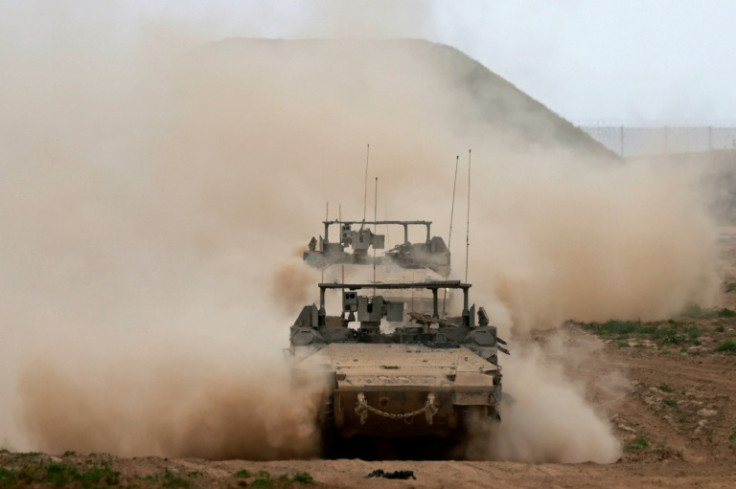
AFP
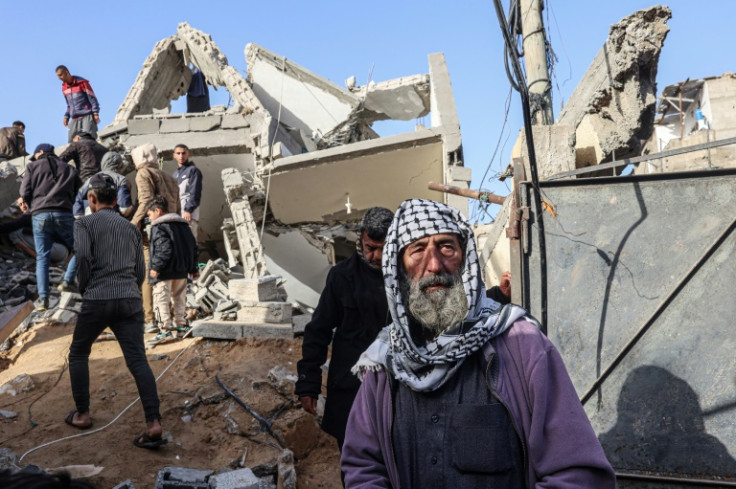
AFP
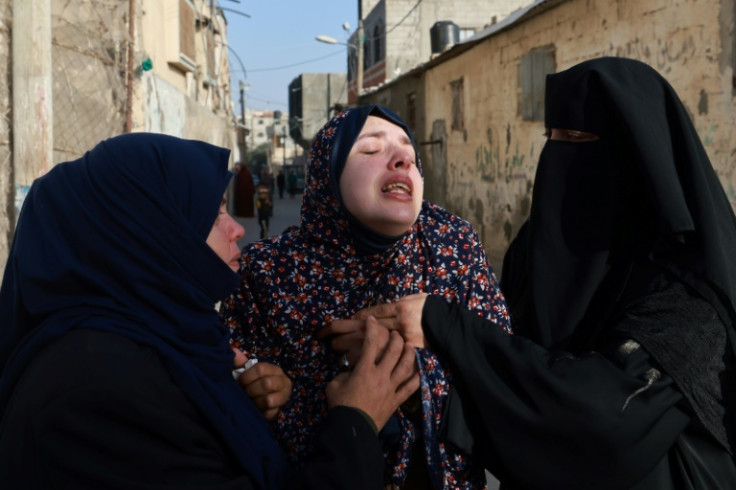
AFP
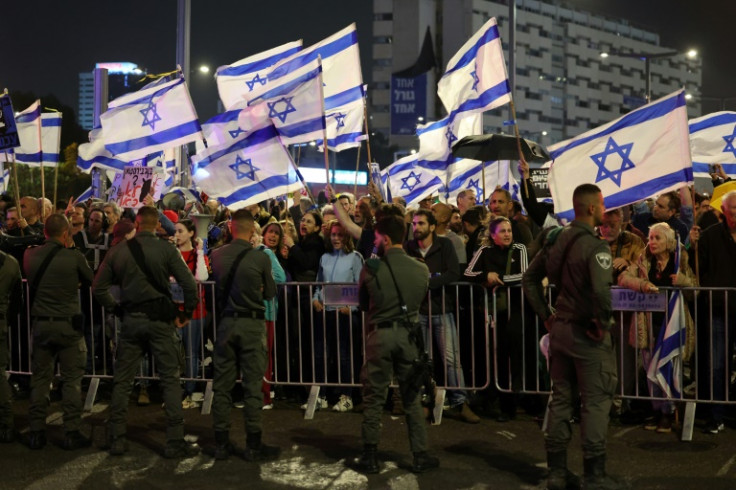
AFP

